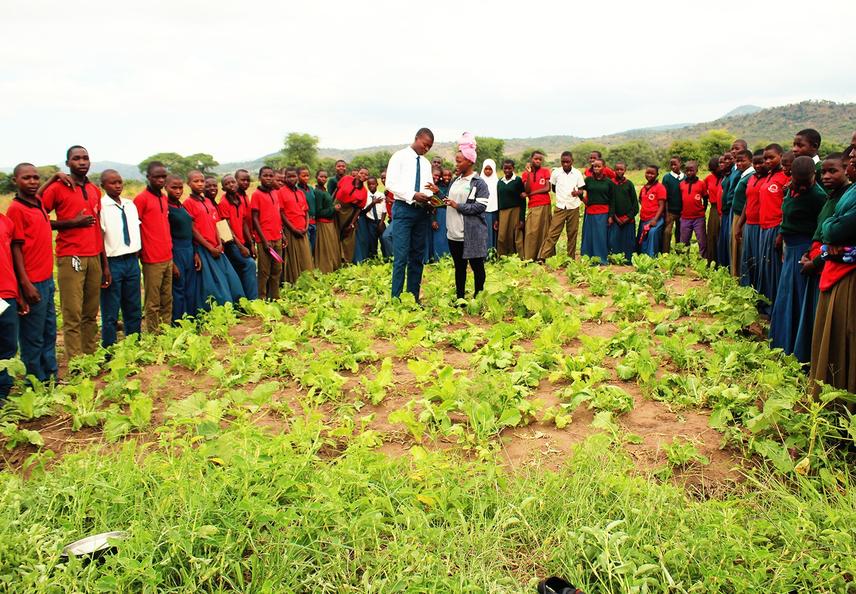Happyness Jackson Onesmo
Katavi National Park (KANAPA) is under significant threat from climate change to habitat loss, primarily due to human activities such as charcoal making, encroachment, overgrazing, and clearing of forest for farming, especially in the southern part of the park. These challenges risk the park’s biodiversity, affecting both current and future generations. To address these issues, educating people about the importance of biodiversity conservation is crucial, integrating this education into school curricula. Instilling awareness and positive attitudes from a young age can greatly enhance conservation efforts. Thus, we aim to engage students living in areas impacted by wildlife incidents such as elephant crop raiding and habitat degradation, by providing them with practical conservation knowledge and transforming their beliefs, perceptions, and behaviours toward wildlife.

Ms Happyness briefing on importance of school vegetable gardens to Mirumba secondary students. ©Bahati Kayanda.
We want to nurture 30 school wildlife clubs to become future conservation leaders with a strong positive conservation mindset. These activities will help students develop an understanding of biodiversity and learn how to protect nature. Experiencing wildlife firsthand during park visits helps to foster a personal connection to the natural world, motivating students to become passionate about conservation. The project includes various activities, such as ecological studies, tree-planting campaigns, and class sessions, all designed to enhance students' awareness, knowledge, and passion for protecting wildlife.
Additionally, teachers will receive two trainings in conservation knowledge, skills, and age-appropriate teaching methods to effectively engage both primary and secondary school students. This aligns with our broader organisational goal of creating sustainable, self-reliant wildlife clubs that will continue to operate independently, ensuring long-term dedication to conservation. By empowering students, this initiative will cultivate a new generation of conservation leaders who will advocate for the protection of natural resources and foster a lasting commitment to wildlife conservation within their communities.
Also, students will collaborate with their communities to produce and plant 30,000 tree seedlings in village natural forest areas and school farms, an initiative contributing to reforestation and restoration initiatives. All these, enhance their understanding of ecological processes and demonstrate their efforts' positive impact. Involving students in conservation has benefits that extend beyond individual development. Students becoming more knowledgeable and passionate about conservation can influence their families, peers, and communities, which leads to broader community support for conservation initiatives and sustainable practices.
Header: School children during park visit at Katavi National Park. ©Emmanuel Stephens.